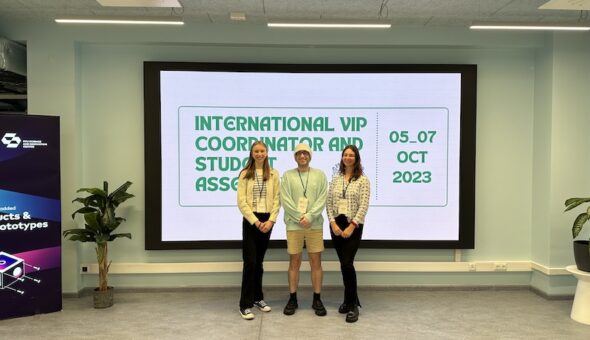Dr Clare Power, Academic Staff Developer in the Centre for Learning & Teaching, reflects on the fast and furious lightning talks session introduced to EduFest this year. The themes covered by the 30-minute session of five-minute talks were: research-engaged learning, employability, citizenship, inclusivity and sustainability.
Dr Steve Cayzer from the Department of Mechanical Engineering was first up to present on his work with one of his final-year students, Afkar, on “Does team based learning mean team based working?” Steve is an advocate of transitioning students from group to team based learning. He explained that team work is a key skill in trying to move away from individual isolated learning to engaged collaborative learning. He set the cohort an individual pre-test at the start of the learning activity and then asked the students to do same test with their team and found that with 88/90 students the team score was better than individual scores over the 12 weeks of the unit duration. The advice from this is that by team effort you will achieve better than working alone. He further found that, generally, the team score is similar to the score of the strongest individual in the team. Sometimes, the individual strongest student score is higher than the team score; this may be due to a lack of communication or sharing of information/learning over the 11 weeks period. Steve looked at relative team performance with quantitative and qualitative data, considering: Intervention positive observation, intervention intrinsic motivation and sustained improvement and extrinsic motivation.
The conclusion he drew was this investigation had produced indicative results that Team Based Learning (TBL) does improve student performance. He would like to standardise the qualitative observations of TBL and continue this research to confirm these initial observations and results.
Diana Hopkins and Tom Reid from the University Skills Centre presented next on: “ The 5 core principles of effective communication that your students need to know and use”.
As an icebreaker Diana and Tom gave us 20 seconds to spot the mistakes in a displayed paragraph, and the audience spotted spelling, punctuation, style variation mistakes and written errors as a result of being poorly informed. They then explained how this exercise exemplifies the faults in student communication, preventing their written work from being accurate, clear, concise, appropriate and informed; the five core principles of effective communication. These five principles are appropriate across the board as all disciplines require these academic skills.
They then posed the rhetorical question: Do these really matter? They emphasised that students do not just need academic success but also need life and professional skills so they have to engage with a learning cycle to encompass content and substance, and then move from content understanding to higher impact and substance in their work.
This idea works well, with Curriculum Transformation skills providers and academics having to work together to integrate skills into the curriculum, and not have skills just as an “add on”. Students need to be able to reflect, analyse and interpret what they know. Diana and Tom finished with an analogy of a messy box of cables; if we improve the organisation of the cables, they become more effective. They promoted the Academic Skills Handbook and recommended that lecturers put it on their unit reading lists.
Dr Andrew Cookson, Department of Mechanical Engineering presented: “a case study on research inspired teaching in computational modelling and simulation to improve student engagement and learning outcomes”.
This case study is based on his final-year option unit. Students on this unit will be working in industry within 12 months. It’s a popular unit and therefore has high class sizes, and is assessed 100% by coursework.
Traditionally, students are taught theory, with the practical application carried out on commercial software, which students may not understand how to use. According to Andrew, an alternative is to teach students theory but assess their implementation approach; again, this method is limited in student learning and doesn’t align assessment and teaching activities. His approach is, therefore, to teach the theory, the practical implementation, and the subsequent use of the method, thereby increasing student engagement and ensuring effective learning of all aspects of the content.
This approach uses the same code design as in his research but is simplified given the semester time constraints. It uses the same equations and the same types of research questions are being asked, but using MATLAB. Although this is the programming language that is familiar to mechanical engineering students at Bath, it still requires the students to follow good programming practice, such as unit testing. This is all much closer to what they will need to do in employment.
The unit has become very popular with cohort numbers having tripled since it was started, but the standard of assessment is still very high and students mimic what he does in his research and its real world application, thus giving them authentic and professional learning experiences.
This case study is based on his final year option unit. Students on this unit will be working in industry within 12 months, it’s a popular unit therefore it has high class sizes and is assessed 100% by coursework??
Traditionally, students are taught theory and practical application on commercial software so students don’t actually understand how the software works. Andrew said alternatively you can teach students theory but assess their implementation approach, but this method again is limited in student learning, therefore his approach is by theory practical implementation and using it increased student engagement and ensured effective learning.
This approach uses the same code design as used in his research but simplified, it uses the same equations, but the same types of research questions are being asked, it uses mat lab as this is the programming language used by students at Bath, and it gets them to test correctness/ feasibility. This is all much closer to what they will need to do in employment.
The unit has become very popular with cohort numbers have tripled since it was started, but the standard of assessment is still very high and students mimic what he does in his research and its real world application, thus giving them authentic and professional learning experiences.
Emily Taylor from the Department of Psychology presented: “Need for cognition is associated with undergraduate academic progress: preliminary findings and future directions”.
Emily shared her preliminary findings on the need for cognition and how it’s related to academic performance with undergraduate students. Need for cognition is a personality trait; an individual’s motivation to engage and enjoy effortful thinking. It is thought to be related to both student satisfaction and academic performance in the USA; lectures lead to better student engagement and thus performance.
In their research, 221 UG students across a range of disciplines at Bath (not just Psychology students), were recruited. Each student completed a brief six-item question survey and reported their degree average. The findings indicated that need for cognition predicted average degree performance. This has implications for teaching; why does the relationship exist? It also informs our educational practice – how do we design learning activities that boost need for cognition? Further investigation is needed; therefore, the next step will be a large-scale follow up across more subjects and year groups and this will be related to student satisfaction surveys.
Emily also described how, as part of the research, they provided a research-engaged learning opportunity for first year UG students. Four students helped to design the study and to collect and analyse the data. She offered this as an example of one way need for cognition could be fostered in UG students and hopefully boost their academic performance.
Emily then invited the audience to send her further suggestions for follow-up research and acknowledged the University of Bath Teaching Development Fund and Whorrod Doctoral Scholarship for supporting the work so far.
Finally, Sam Cook from the SU Bath talked about: “The impact of peer assisted learning (PAL) on students at the University of Bath”.
This project looked at small group student sessions facilitated by students in the year above, which had non-remedial targets but focused on topics that students typically struggle with, and were found to benefit pass rate and reduce drop-out rates, as shown during research at Lund University, Sweden.
Running PAL sessions also benefits those students who lead the sessions. They developed valuable employability skills, including facilitation, leadership, communication and organisational skills, which leaders have reported using in their future careers.
Sam went on to look at some of the session activities that PAL Leaders have used at Bath, including essay skills in Psychology and Sports and Social Sciences, completing drug forms in Pharmacy, management accounts in IMML and the rubber ducky method in Computer Science. Evaluation from 81 PAL attendees showed that over 80% of attendees found PAL had helped them on their course.
Sam finished by directing the audience to the following website for more information - thesubath.com/pal.
Clare Power, Academic Staff Developer, Centre for Learning & Teaching
Respond



